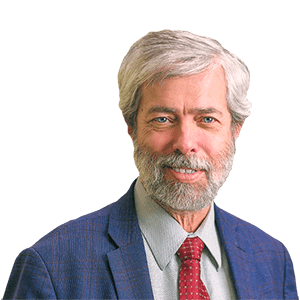Leading from the Margins: Part II
Picking up from Part I and the essay by Meyerson and Scully: the genius of this kind of leadership – leadership and influence from the margins – is two fold. First, we do not surrender our identity or conscience. And second, we learn what it means to be true to ourselves while accepting the limits of our position or limited influence or power. It means we are not purists or idealists; but it does not mean we have lost the strength of our convictions. It is merely that we choose our battles carefully, we accept that small wins or victories do matter and that in many respects our mere presence in the organization is a source of encouragement to others, including our “allies” – others who are at the margins as well.
It must necessarily be both. Meyerson and Scully speak of “outsiders within.” There is a sense of a dual identity that is not – and on this we must insist – a reflection of a lack of conviction or conscience. They are not hypocrites. They are not two-faced; they are not lacking in personal integrity. Anyone who knows them or works with them knows that they are true to themselves and their conscience – including, of course, their deep core values – but still remain resolved, as best as they can, to be generous and gracious participants in the life of the whole. The dual identity can be held, but it is without doubt one that brings a certain and continuous tension; they live in the liminal space of ambiguity and tension, but with a spirit of generosity towards others. They know the rules and live by them; they speak when there is opportunity and choose their words carefully not needing to or presuming to challenge the central or dominant voices each time they speak. They learn, as Emily Dickenson would say, to “tell all the truth, but tell it slant”
Tell all the Truth but tell it slant –
Success in Circuit lies
Too bright for our infirm Delight
The Truth’s superb surprise
As Lightning to the Children eased
With explanation kind
The Truth must dazzle gradually
Or every man be blind –
Perhaps this means that those at the margins learn from poets and other artists whose influence is always a little more subtle and, perhaps, indirect.
They know how to use “insider language” to build bridges and foster understanding — doing so to assure those within the organization that they are not rebels or disaffected or unwillingness to work with the system. But, their language also has within it the seeds of those values and commitments, those convictions or perspectives, that need to be spoken for the well-being of the organization as a whole.
My mother was called to be a preacher and teacher within the church. But the denomination of which she was and is a part was not one that ordained women; only men. However, she stayed the course; and by her very life and her generous response to the opportunities that were given to her, she had a remarkable and effective ministry over the course of 60 years. Finally, in her early 80s the denomination changed its policies and she was the first woman ordained within that church body. Yes, literally 60 years later. Some of her peers might have chosen to leave that church and find ordination elsewhere. And she respected them for this. But she chose to stay and accept what this meant, including the lack of formal endorsement of her ministry. But, in her staying, she was a factor in the decision that eventually led to her ordination – so much later than it should have happen, perhaps, but for her all she thinks about now is that it finally did happen. In the meantime she chose to speak when she could speak and to be quiet when it was more advisable not to speak. When she did speak, while it might occasionally have had an edge to it, it was mainly to teach and preach with a gracious authority and competence and conviction.
 Gordon T. Smith
Gordon T. Smith